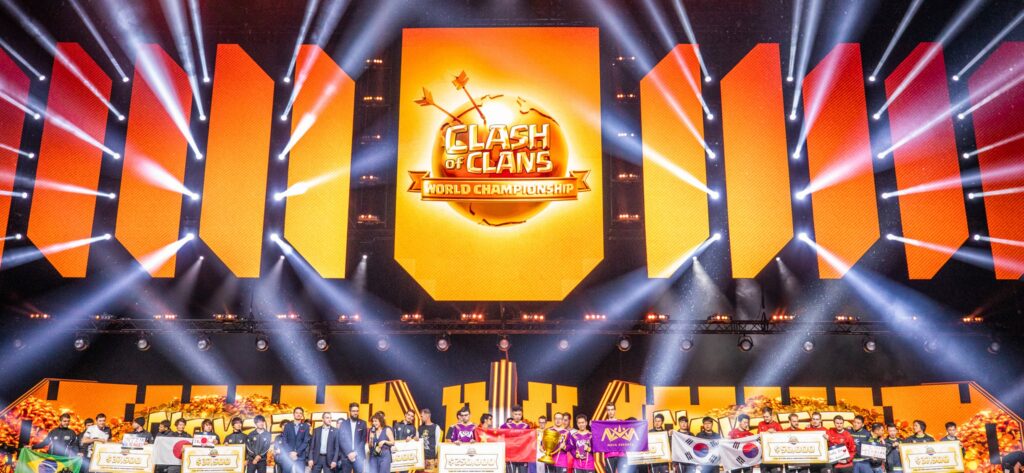
Powerhouse mobile developer Supercell has posted its financial earnings for fiscal year 2019, and the numbers illustrate a third consecutive year of decline, however slight. The Finnish company reports pretax profits of $577 million off of $1.56 billion in revenue, a decline over FY2018’s $635 million and $1.6 billion.
In a blog post on the Supercell site, CEO Ilkka Paananen pointed out that while these numbers are indeed a decline, it’s hard to complain about such lucrative revenues, especially when you consider that the company employs just around 300 people. Paananen also boasted about Supercell’s contributions to Finland’s socialist government programs.
“Our profits allowed us to contribute a total of €100 million (approx. $110 million) in corporate taxes to Finland this year alone,” he wrote. “Many of us who have benefited from our free education and healthcare financed by taxes feel proud that we can contribute to our society in this way.”
Keeping the team small is a core strategy for Supercell. Paananen said Supercell intends to “slow down significantly” when it comes to growing the workforce. Doing so serves to keep development streamlined, and it preserves the company culture. It would be easy for Supercell to inflate the team size, which would be in line with many other high-profile publishers and developers that bring in similar profits. But by keeping things tight, the company avoids overspending, which has the potential to lead to significant corporate restructuring and massive layoffs.
Unsurprisingly, the standout performer for Supercell last year was Clash of Clans, a game that saw substantial reinvigoration in 2019 thanks to the implementation of a battle pass-like monetization model. Released in 2014, the strategy title managed to buck the typical decline in user numbers that games of this age tend to exhibit.
“This isn’t a trend we usually see in games of this age,” Katile Williams, mobile insights strategist at analyst group Sensor Tower, told GameDaily last month. “Other games that were popular during Clash of Clans’ heyday, such as Game of War, have only seen player spending dwindle since. As far as I can see, the only other significant game of this age whose revenue has grown over time is Candy Crush Saga, though I would have to dive into its data to determine whether any singular event has ever jump-started its revenue stream.”
Also noteworthy is that in October, majority control over Halti S.A., the consortium that oversees Supercell, was gained by Tencent, effectively making the developer a subsidiary of the Chinese tech conglomerate.
Over its now decade in existence, Supercell has earned a reputation for killing games it believes will not perform at the level the developer has come to expect. In the blog post, Paananen admitted to doing so again last year.
“We beta-launched and killed another game, one that we were very excited about: Rush Wars,” he wrote. “The team behind the game killed it because based on the beta, they felt like this was not going to be a game that lots of people would play for years nor would it be remembered forever. The early gameplay was lots of fun, but it just did not carry over to the endgame.”
According to Williams, killing a game is a fairly common practice in the mobile market.
“Mobile game makers kill titles in soft-launch all the time, while some do it in public release,” WIlliams said. “One of the most notable recent examples was Nexon’s Durango: Wild Lands, which the company killed seven months into release after having spent more than five years developing the ambitious MMO title. Supercell is fairly unique, in that it frequently kills titles before they even see the light of day. Rush Wars‘ recent closure is a rare example of the company axing a game in soft-launch. Brawl Stars nearly met the same fate after more than a year in beta, but its team was able to turn things around in time.”
For Paananen, killing a game does not mean it was a failure. Rather, he sees it as an opportunity to learn and grow, which results in better games.
Elsewhere in the blog post, Paananen touched on a number of other aspects of Supercell’s business, such as the company’s commitment to becoming carbon neutral.
“With the help of our data scientists and outside experts, I feel we got to a solid estimate of our total footprint, and we then offset those emissions through a partnership with South Pole. It may be a small thing considering the massive challenge our world is facing right now, but we wanted to do our part to help,” he wrote.
Despite generating $1.56 billion in revenue last year and over half a billion in net income, it was far from the most profitable among mobile juggernauts.
“Supercell ranked number five for revenue among all game publishers across the App Store and Google Play in 2019. The only publishers to earn more were Tencent, NetEase, King, and Bandai Namco,” Williams explained.
Still, there’s no denying that Supercell is a leading name in the mobile market, which is on track to be a $100 billion market this year. It’s games like Clash of Clans and Clash Royale that helped cement mobile as the most lucrative gaming sector, and there’s no reason to believe that the developer won’t continue its dominance in the foreseeable future.
Sam, the Editor-in-Chief of GameDaily.biz, is a former freelance game reporter. He's been seen at IGN, PCGamesN, PCGamer, Unwinnable, and many more. When not writing about games, he is most likely taking care of his two dogs or pretending to know a lot about artisan coffee. Get in touch with Sam by emailing him at sdesatoff@rektglobal.com or follow him on Twitter.
 GameDaily.biz © 2025 | All Rights Reserved.
GameDaily.biz © 2025 | All Rights Reserved.